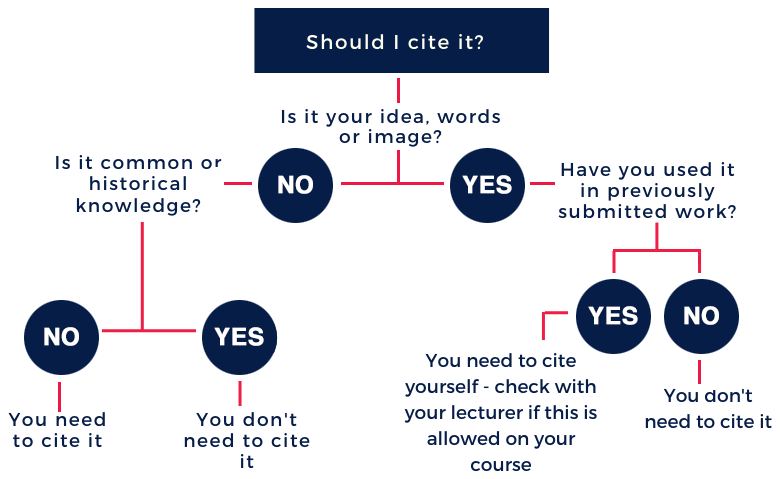Dos and Don'ts of Referencing in Academic Writing

Referencing DOs and DON’Ts
There are some measures or guidelines which should be followed while providing referencing in Academic Writing. These are:
Do’s :
Recognise the required referencing format: Learn the exact citing guidelines your institution or lecturer has specified (for example, APA, MLA, or Harvard). Recognise the specifications and requirements for reference lists, formatting, and in-text citations.
Need to cite all sources: The site and its sources should be acknowledged in academic writing, websites, books, journal articles and so on. If the original source is not given, it’s considered plagiarism.
Use reputable and reliable sources: One should always rely on reputable and scholarly sources for academic writing. This helps in adding credibility and value to the writing.
Remember to give accurate and comprehensive details: The authors’ names, the year of publication, the titles, the page numbers, and URLs should all be precisely included for each reference. For more information on the formatting standards, consult the reference style rules.
Do adhere to the principles of punctuation and order: Pay close attention to how a reference’s components are arranged and punctuated. The arrangement of the parts, capitalisation, use of italics or quote marks, and other formatting requirements vary depending on the referencing style.
Verify and proofread your references; please: Verify the accuracy and thoroughness of all your references. To prevent mistakes, misspellings, or improper formatting, proofread the reference list and the in-text citations.
Utilise citation tools and resources: Use citing software and tools (such as Zotero, EndNote, or online citation generators) to help you format your references properly. These devices can speed up the process and increase precision
Don’ts :
Prevent dependency only on search engine results: One must be cautious while accessing unconfirmed internet sources. Blogs, forums, and other websites that are not academic may not be reliable sources to use as references in academic work.
Avoid using them excessively: Direct quotations should only be used seldom. Instead, rephrase or paraphrase the information you’ve learned from sources and include accurate in-text citations to show that you borrowed it from reliable sources.
Avoid copying and pasting without giving due credit: Be careful not to directly copy and paste text from sources without giving due credit. Intentional or accidental plagiarism is a serious academic offence. Any verbatim text should be cited properly and in quotation marks.
Don’t rely exclusively on automated citation generators: Citation makers are useful, but they could be better. Review the generated citations again to ensure accuracy and fix any mistakes or discrepancies.
Be sure to reference: citing should be a crucial step in writing, not an afterthought. Planning and allocating enough time for references can help you assure accuracy and prevent last-minute mistakes.




